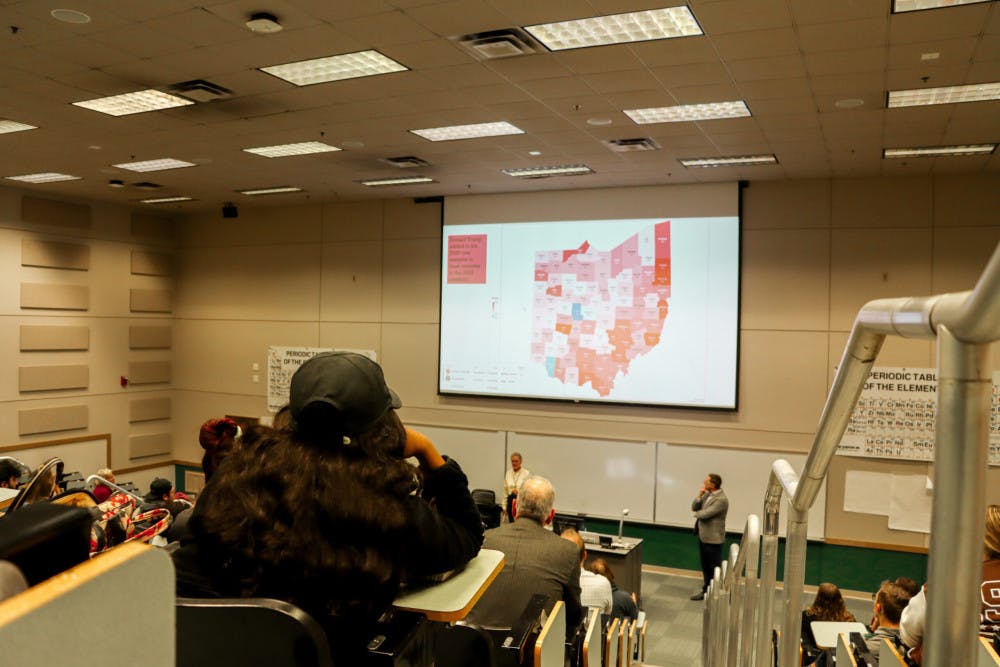Post-election Panel | Photo by Rose Taylor | The Wright State Guardian
Several panelists, including a Wright State University professor and journalists from the Dayton area, held a panel open to the community on Nov. 14 to discuss the election.
Candidates and issues
The 2024 presidential election was said to be close from the start. Candidates tried their best to sway voters to vote for them using many different methods.
However, this election had a lower voter turnout than the 2020 election. This was a big change because voter turnout has been steadily increasing since 1996, with this election being the first since to see a decrease in voters.
One reason for this was the lack of information being shared. Studies have shown that many voters were unclear on where candidates stood on specific issues.
Another reason for the lower voter turnout was doubt in candidates, as voters did not believe they would follow through on their campaign promises.

Lee Hannah, a professor of political science at WSU, spoke on the development of the connection between voters and candidates.
“We live in an era of close elections. We also live in an era where a lot of what’s said won’t happen. Candidates focus more on drawing in new voters, rather than pleasing the existing voters,” Hannah said.
As both parties tried to draw in more voters, there was one big mistake made by the democratic party that many believe led to their loss in the election: their targeted demographics.
Dean Anagnostou, a student from Professor Hannah’s class, shared how this impacted the election results.
“The democratic party focused heavily on issues targeted at younger voters whereas the republican party targeted non-demographic specific voters, that’s what won them the election,” Anagnostou said.
Media and journalism
In the media, writers would present the facts about a particular issue and then give a rundown on how each candidate feels about them. That way readers would be educated on the issue and see which opinions they identify with more.
Things have changed over the years as technology evolves. Elyse Coulter, a news anchor for channel Fox 45, shared how this has affected voters.
“More people are getting their information from their phones: TikTok, podcasts [and] YouTube. That’s the biggest shift,” Coulter said.
Ohio has also seen a decrease in political news over the years. It used to be a swing state, but each year it has become more and more Republican. This has also led to a decrease in campaigning, as candidates spend more time in swing states.
Lynn Hulsey, a reporter for Dayton Daily News, has had an exciting history in journalism, including interviewing Barack Obama and Hillary Clinton.
“Politics can be mean, candidates like to play hard and loose with the facts. When Ohio was a swing state, there was a lot more political journalism,” Hulsey said.
Politics have devolved over the years, and that is very apparent in the 2024 election. People have stopped checking their facts which has led to lots of misinformation. There has also been a huge increase in cynicism towards politicians.
We have access to so much information, that it is critical to sort through it and become educated on a topic before voting on it.











